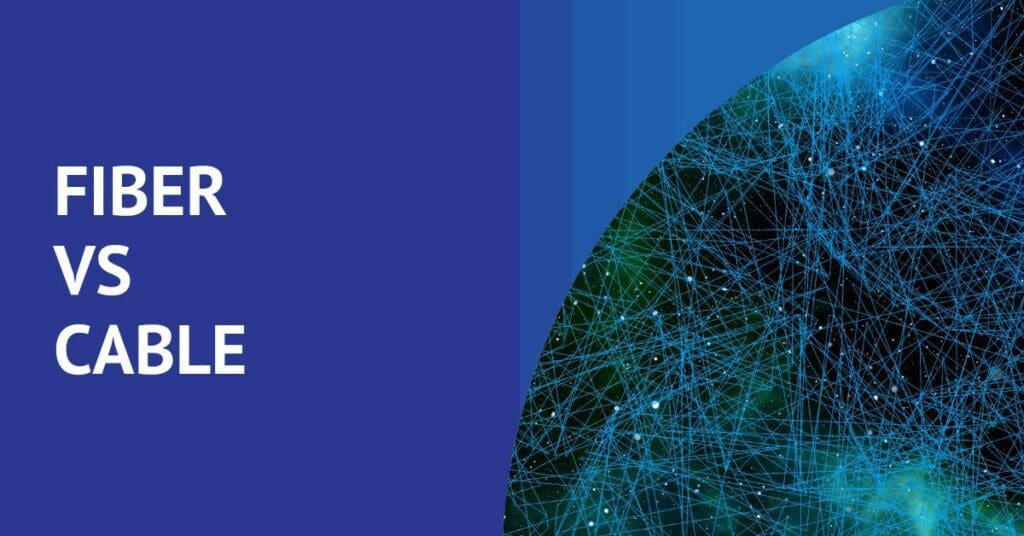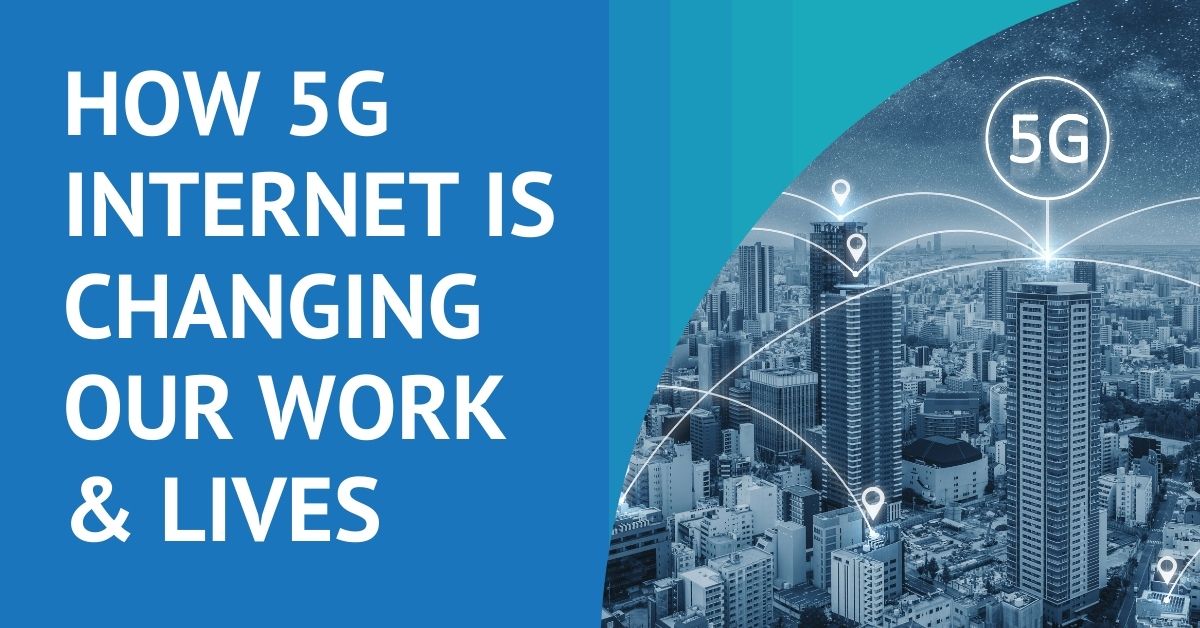What’s the Difference Between a Fiber and Cable Business Internet Network?

Understanding the differences between internet services is helpful in determining which is right for your business communications. Additionally, it’s important to keep in mind that commercial entities have different internet needs than residences, so choosing the best business internet network requires some research and consideration.
Two potential options include fiber and cable, both of which have advantages and some disadvantages for businesses. Here’s more information on these two types of internet networks and what they can do for your company.
First, What Are Cable and Fiber Internet?
Cable internet networks rely on copper wires to send data, the same type of coaxial cable network as cable television. It’s a form of broadband where your internet service provider sends data signals through the cable to your modem for internet access.
While fiber internet networks resemble cable, they differ in some key areas. They use a fiber-optic cable that sends data through pulses of light rather than through electricity, making them much quicker than typical cables.
Fiber vs Cable Business Internet Networks
Now that you know the basics of these two network solutions, let’s look at the ways these differ and how your business can benefit from them.
Fiber Network: Best for Speed and Bandwidth
In comparison to cable internet, fiber can offer better protection against weather-related outages due to fiber-optic cables. Plus, with fiber, the bundles of strands are wrapped in protective plastic, making the connection clearer and able to travel great distances. Here is more information on fiber and its pros and cons:
Pros
- Better internet security
- Scalability to meet business needs
- Faster download and upload speeds
- More reliable connection, especially in weather events
- More bandwidth than traditional lines
Cons
- More expensive
- Less accessible than cable currently
Cable Network: Cost-Effective and Widely Available
Cable is less costly than fiber, which is essential for businesses to consider when budgeting for their expenses. Plus, if you don’t necessarily need internet service with all the bells and whistles, cable still can offer fast speeds. Here’s what you need to know about cable networks:
Pros
- Less expensive
- More widely available
- Easiest option for businesses needing a basic connection
Cons
- More susceptible to weather events (extreme cold, storms, etc.)
- Shared internet with “neighbors” (anyone else with the connection)
- Lower, less symmetrical speeds — downloads may be quicker than uploads
Choosing the Right One for You
There are numerous factors to consider when selecting a business internet network. Which one would be most cost-effective? Which option offers you the right amount of speed and reliability? Some businesses may only need a basic cable network to meet their needs. Other companies, however, may require fiber’s speeds, bandwidth and security for productivity and efficiency, despite the higher price tag.
It’s also important to check what networks are available since fiber internet isn’t as widely available. Do research for other businesses in your niche to see which internet network works for their brand. This information may also help to narrow down the right choice for you.
Get a Scalable Business Internet Network
When choosing an internet network, whether it’s fiber or cable, it’s crucial to have an experienced communication provider you can trust to grow with your business. At Universal Connectivity, we understand having reliable service and clear connections enable your business to better serve customers without interruption.
Schedule a consultation with us today to see how we build fast, reliable and scalable internet solutions that give businesses a competitive edge.
Choosing a Business Phone Provider
How do you choose the right business communication partner to help your business thrive? Grab our free, one page checklist. Compiled based on years of experience, this download can help you jump start your search and selection process and:










